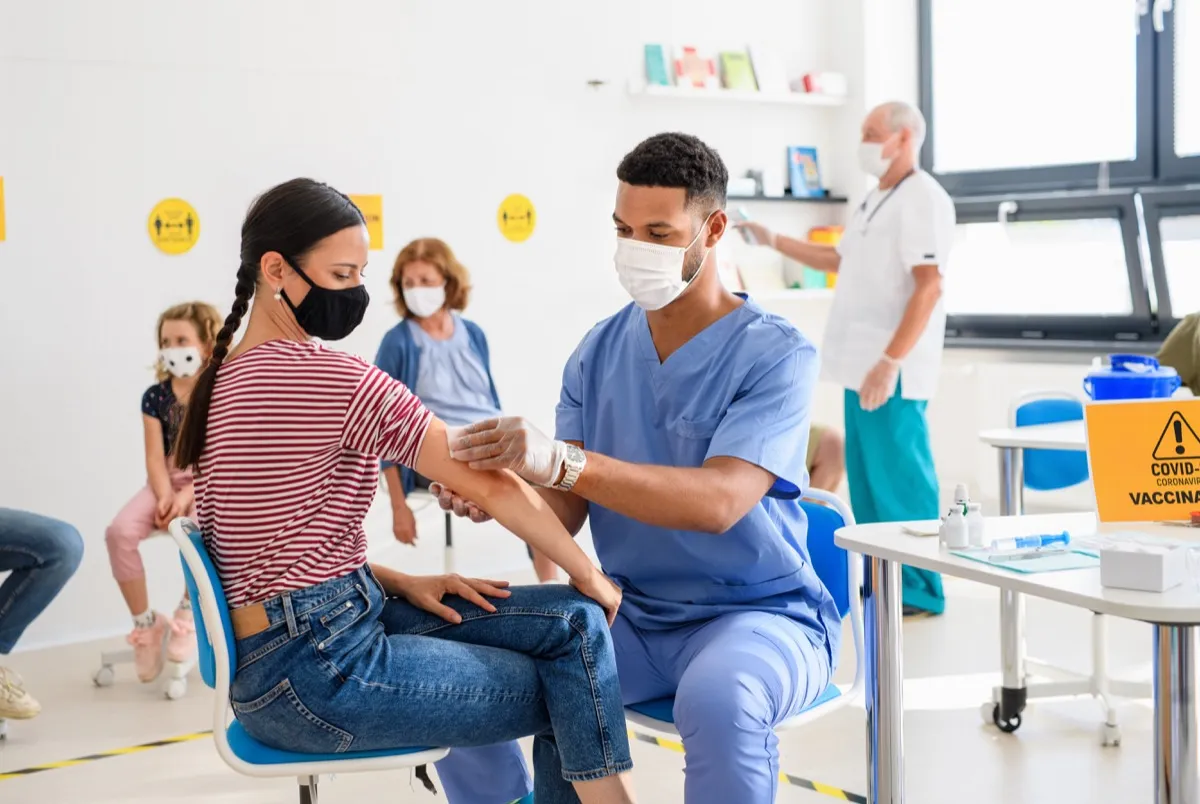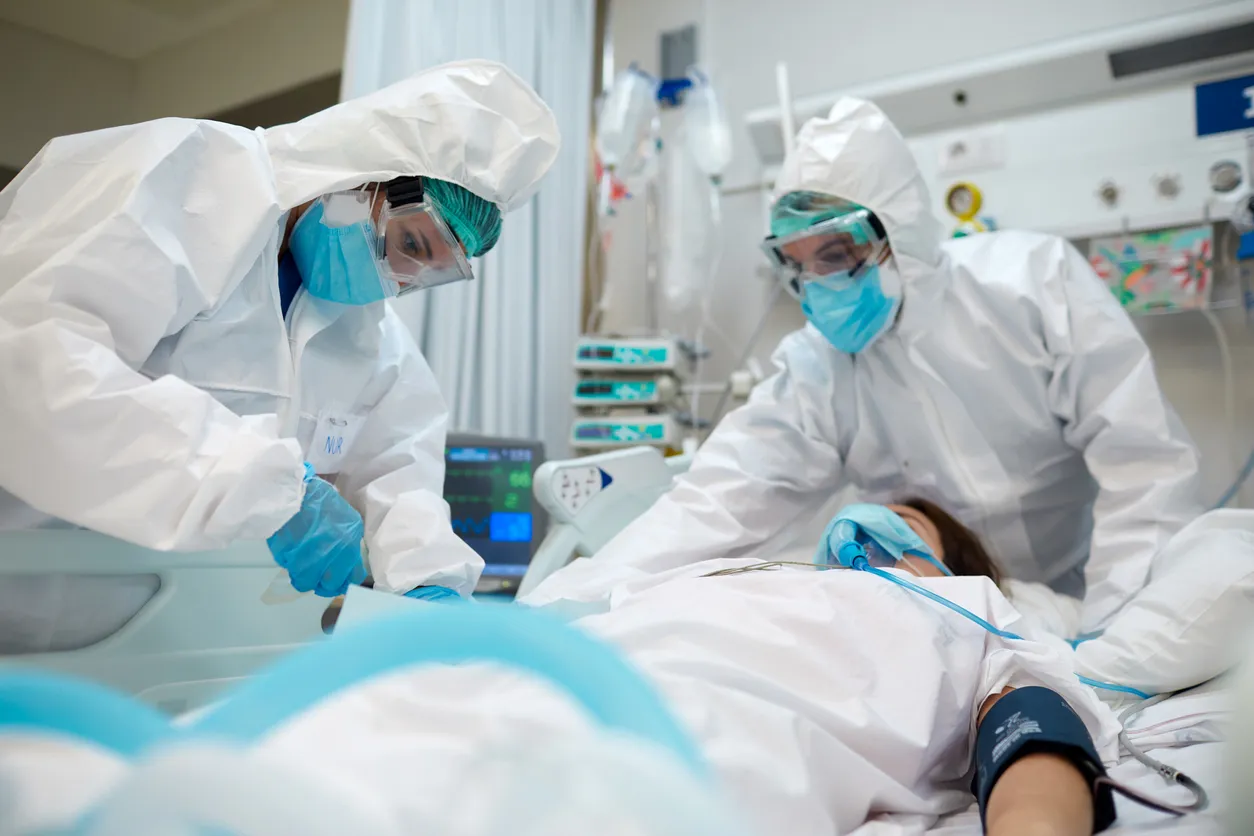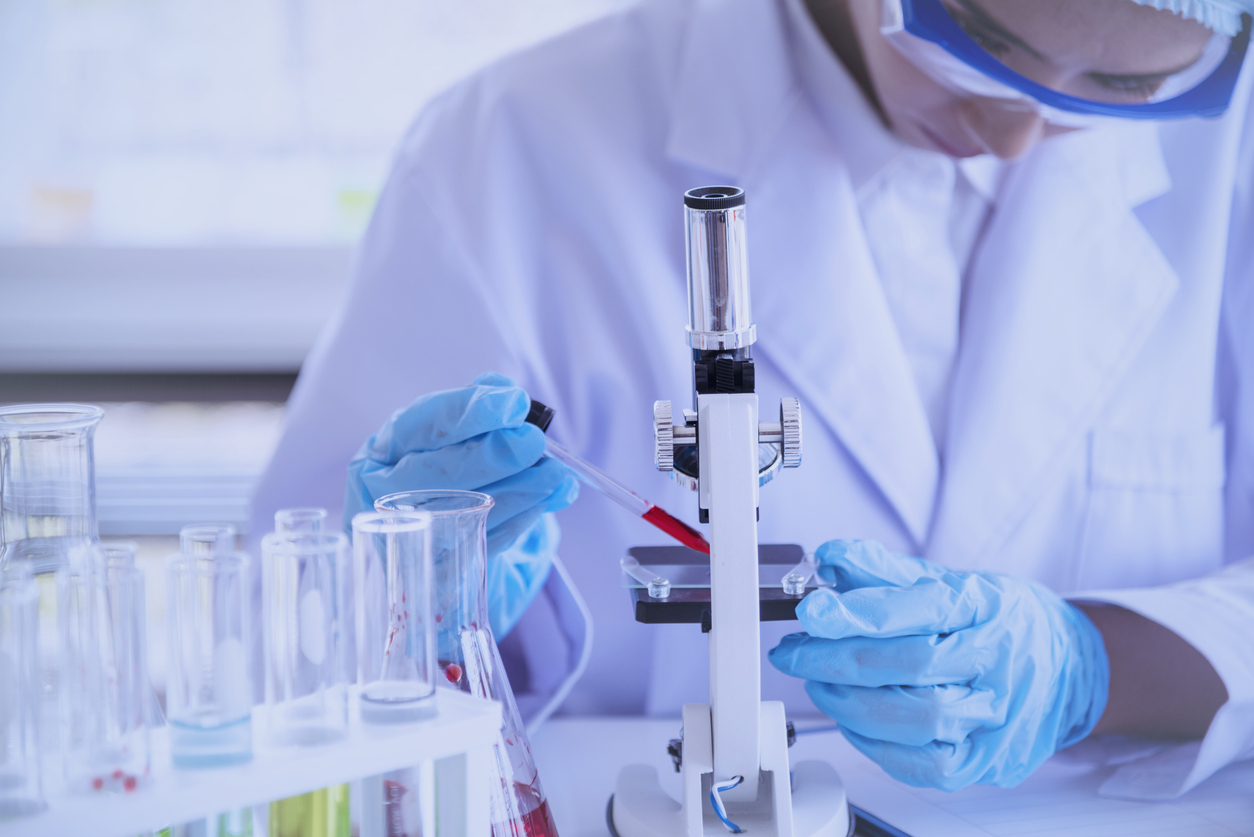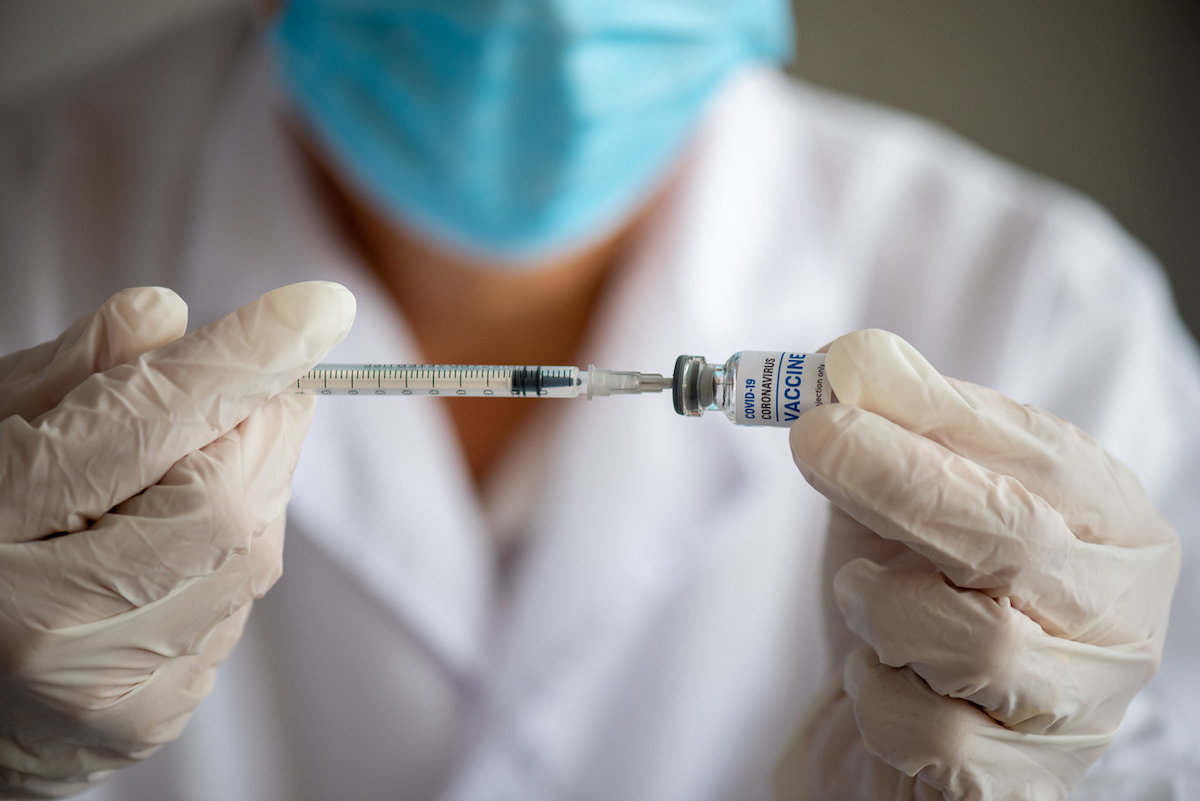The new study, which was released in pre-print and has not yet been peer-reviewed, comes from the National Institute for Communicable Diseases (NICD) of the National Health Laboratory Service (NHLS), Johannesburg, South Africa, where the variant known as SARS-CoV-2 501Y.V2 has raised concerns. The researchers took blood from 44 patients who had recovered from COVID-19 prior to September, which is when the South African strain of the virus was first discovered, CNN reports. Troublingly, researchers found that half of the patients were not protected by their natural antibodies against the new variant, which made researchers wonder if the vaccines will fall short in protecting against 501Y.V2 as well. “I think we should be alarmed,” Penny Moore, PhD, associate professor at the NICD and the senior author of the study, told CNN. “We saw a knockout. It was a scary result.” And for more vaccine news, check out The Biggest Mistake You Can Make After Getting Vaccinated, Experts Warn. The findings showed that for about half of the 44 subjects, antibodies were unable to protect them from reinfection from the new strain of the virus. However, the other half of the subjects, who had experienced more severe cases of COVID during their initial infection, saw a weakened but not completely diminished immune reaction to the new strain, thanks to their original increased antibody response. Researchers also found that two mutations on the surface of the South African strain directly affected the spike proteins that are used as targets by vaccines. “It’s likely that the vaccine is going to be somewhat less effective, but how much less effective we don’t know,” David Montefiori, PhD, a virologist at Duke University Medical Center who was not involved with the study, told CNN. And for more on how you can keep yourself safe, check out If You’re Not Doing This, Your Mask Won’t Protect You, Study Says. With the potential vulnerability exposed, researchers are now continuing to study how the new variant could diminish the effectiveness of vaccines. But many fear that the evidence currently suggests there’s a serious problem: “I don’t have any reason to think the results with people who’ve been vaccinated will be any different than with the people who had prior infection,” Montefiori told CNN. “This is the first time I’ve been concerned about a variant partially evading the immune response and partially evading the vaccine.” On Jan. 12, Anthony Fauci, MD, said early data suggests there’s “more of a threat” with the South African strain. “It could be having some impact on protection for the monoclonal antibodies and perhaps even for the vaccine. We don’t know that,” Fauci said during a Q&A for Schmidt Futures’ Forum on Preparedness, according to CNBC. While Fauci expressed concern that this strain could make monoclonal antibody treatments less effective, he was hopeful about the vaccine as of three weeks ago. “When you get vaccinated, the immune response that you make…works against many different parts of the virus,” he said during a Dec. 30 discussion with California Gov. Gavin Newsom. And for more regular COVID updates, sign up for our daily newsletter. Despite the disheartening discovery, researchers are still suggesting that as many people as possible get vaccinated. Moore pointed out one recent study from Sheba Medical Center in Israel, which has yet to be peer-reviewed or posted online, that found 102 healthcare workers who received both doses of Pfizer’s vaccine produced bloodwork that showed an antibody response much higher than patients who had previously suffered from severe COVID.ae0fcc31ae342fd3a1346ebb1f342fcb “We have to remember, the Pfizer and Moderna vaccines are 95 percent effective—that’s an extraordinary level of efficacy,” Montefiori told CNN. “If it reduces to 90, 80, 70 percent effective, that is still very, very good and likely to have a major impact on the pandemic.” And for more on what you should know before you get your jab, check out Dr. Fauci Just Gave This Vital Advice About Your COVID Vaccine.



